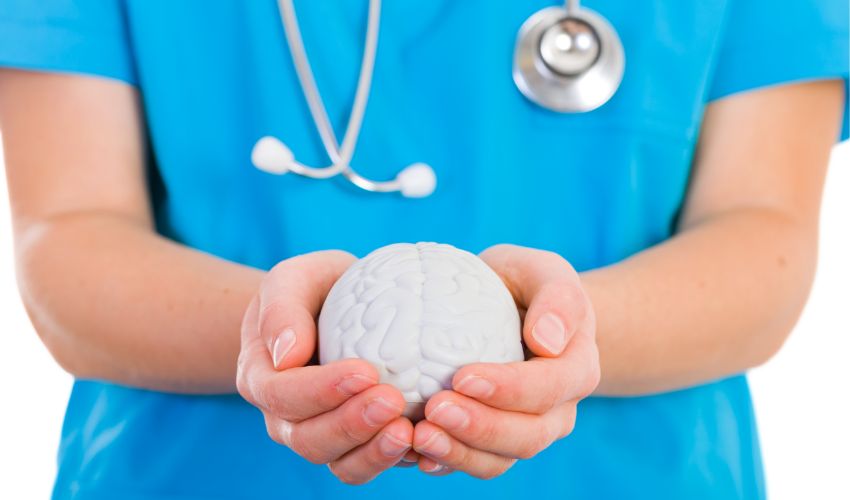Mental health refers to our emotional, psychological, and social well-being. It affects how we think, feel, and act, and it plays a critical role in our overall health and well-being. Mental health issues can range from mild anxiety to severe depression, bipolar disorder, and schizophrenia. Unfortunately, mental health issues are common, affecting millions of people worldwide. However, with the right treatment and support, people can recover and lead fulfilling lives.
The importance of mental health:
Mental health is just as important as physical health. It affects how we think, feel, and act, and it plays a critical role in our overall well-being. Good mental health allows us to cope with the stresses of life, maintain healthy relationships, and make meaningful contributions to society.
Common mental health issues:
Mental health issues can affect anyone, regardless of age, gender, or background. Some common mental health issues include:
- Anxiety disorders: These are characterized by excessive worry, fear, and tension. Common types include generalized anxiety disorder, panic disorder, and social anxiety disorder.
- Depression: This is a mood disorder that can cause persistent sadness, loss of interest in activities, and other symptoms that affect daily life.
- Bipolar disorder: This is a mood disorder that involves alternating periods of mania and depression.
- Schizophrenia: This is a severe mental illness that can cause delusions, hallucinations, and disordered thinking.
- PTSD: This is a disorder that can develop after experiencing or witnessing a traumatic event.
Signs of mental health issues:
Recognizing signs of mental health issues is crucial to getting the right treatment and support. Some common signs include:
- Changes in mood, behavior, or personality
- Difficulty concentrating or making decisions
- Withdrawal from social activities and relationships
- Unexplained physical symptoms
- Changes in appetite or sleep patterns
- Thoughts of self-harm or suicide
Strategies for managing mental health issues:
Strategies for managing mental health issues can vary depending on the condition, but some common approaches include therapy, medication, and lifestyle changes. Coping with anxiety may involve deep breathing exercises, relaxation techniques, and exposure therapy. Dealing with depression may involve talking to a therapist, taking medication, and making lifestyle changes like exercise and getting enough sleep. Managing bipolar disorder may involve mood stabilizers and therapy, while treating PTSD may involve therapy and medication. Handling OCD may involve exposure and response prevention therapy, cognitive-behavioral therapy, and medication.
When to seek professional help:
You should seek professional help for mental health issues if you’re experiencing persistent symptoms that interfere with your daily life, work, or relationships. It’s important to seek help if you’re feeling overwhelmed, hopeless, or have thoughts of self-harm or suicide.

Bullet Points:
- Mental health is a crucial aspect of our well-being that can affect our physical health, relationships, and overall quality of life.
- Common signs of mental health issues include changes in mood, behavior, sleep, and appetite.
- Mental health disorders like anxiety, depression, bipolar disorder, PTSD, and OCD are treatable conditions that require professional help and support.
- Taking care of your mental health involves practicing self-care, building support systems, staying active and eating healthy, and seeking help when necessary.
- Strategies for managing mental health issues include coping with anxiety, dealing with depression, managing bipolar disorder, treating PTSD, and handling OCD.
FAQs:
What is mental health, and why is it important?
Mental health refers to our emotional, psychological, and social well-being. It affects how we think, feel, and behave in daily life. Mental health is important because it impacts our overall quality of life and can affect our physical health, relationships, and work.
What are the signs of mental health issues?
The signs of mental health issues can vary depending on the condition, but common symptoms include changes in mood, behavior, sleep, and appetite. Other signs may include feeling sad or hopeless, increased anxiety or irritability, social withdrawal, and difficulty concentrating.
How do I take care of my mental health?
Taking care of your mental health involves practicing self-care, building support systems, staying active and eating healthy, and seeking help when necessary. Some tips include getting enough sleep, practicing relaxation techniques, doing things you enjoy, and staying connected with loved ones.

What are some strategies for managing mental health issues?
Strategies for managing mental health issues can vary depending on the condition, but some common approaches include therapy, medication, and lifestyle changes. Coping with anxiety may involve deep breathing exercises, relaxation techniques, and exposure therapy. Dealing with depression may involve talking to a therapist, taking medication, and making lifestyle changes like exercise and getting enough sleep. Managing bipolar disorder may involve mood stabilizers and therapy, while treating PTSD may involve therapy and medication. Handling OCD may involve exposure and response prevention therapy, cognitive-behavioral therapy, and medication.
When should I seek professional help for mental health issues?
You should seek professional help for mental health issues if you’re experiencing persistent symptoms that interfere with your daily life, work, or relationships. It’s important to seek help if you’re feeling overwhelmed, hopeless, or have thoughts of self-harm or suicide.
Conclusion:
Mental health is an essential aspect of our well-being that requires attention and care. Understanding and managing our mental health can have a significant impact on our overall quality of life, relationships, and work. By recognizing signs of mental health issues, taking care of ourselves, and seeking professional help when necessary, we can improve our mental health and live happier and healthier lives. Remember, taking care of your mental health is just as important as taking care of your physical health.






















